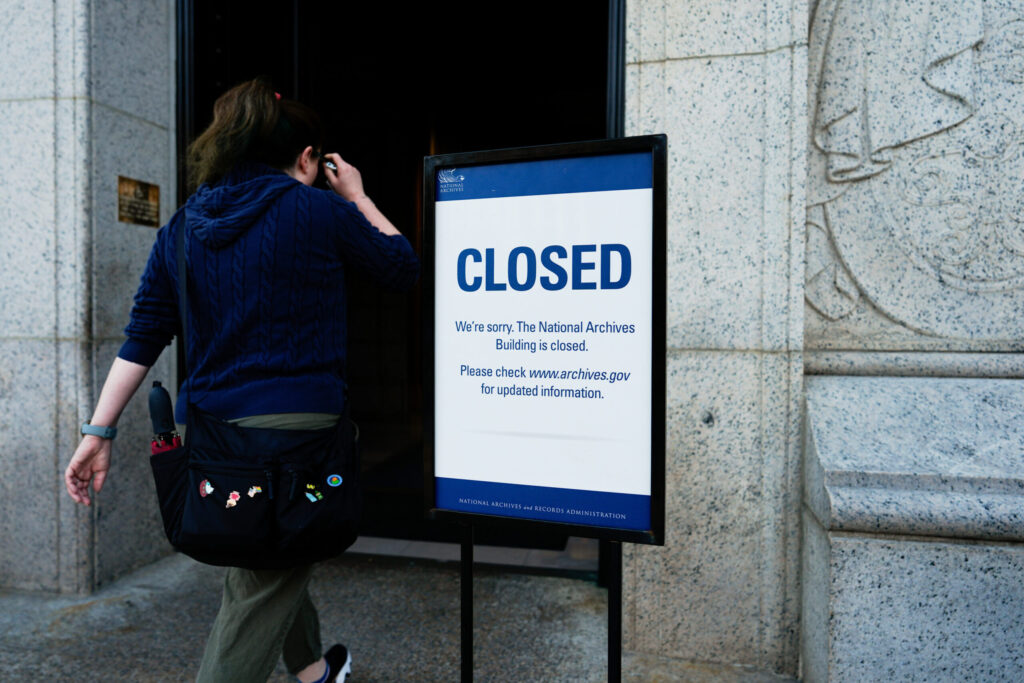Federal water bill bites the dust, again

A bill that has enjoyed broad bipartisan support in the House for the past two years got a very different response recently, and Republicans are crying foul.
Senate Bill 15-064 is the third in a three-year effort to tell the federal government that they do not have the right to demand water rights from ski resorts in exchange for renewing their leases for federal lands.
This year, Sen. Jerry Sonnenberg, R-Sterling, who sponsored the bill in the House in past years, introduced a slightly different version of the bill, adding to it a prohibition on the state water engineer and other water engineers from cooperating with the Forest Service or Bureau of Land Management on enforcing conditions for the special use permits ski resorts hold on public lands. That bill also was supported by the bipartisan Interim Water Resources Review Committee, which includes Rep. Diane Mitsch Bush, D-Steamboat Springs; and Rep. Ed Vigil, D-Alamosa, who chairs the House Agriculture, Livestock and Natural Resources Committee.

SB 64 sailed through the Senate Agriculture, Natural Resources and Energy Committee on an 8-1 vote. That included a “yes” vote from Sen. Kerry Donovan, D-Vail, whose district includes the Eagle County ski areas, as well as Crested Butte and Aspen. Sen. Mary Hodge, D-Brighton, also voted in favor of SB 64.
On the Senate floor, the bill picked up four more votes from Democrats, and passed on a 24-11 vote.
But instead of going to the House Ag Committee, where the previous versions had passed easily the last two years, SB 64 was assigned to the State, Veterans and Military Affairs Committee. And true to its reputation as the “kill” committee, the bill died on a 5-6 party-line vote. One of those “no” votes came from Rep. Mike Foote, D-Denver, who voted in favor of the 2014 version.
Sonnenberg was furious. He told The Colorado Statesman last week that it was just politics. “I don’t get it,” he said. “It’s politics at its worst, when we don’t defend Colorado water rights owners.”
This week, House Speaker Dickey Lee Hullinghorst, D-Boulder, defended her decision to send SB 64 to the State Affairs committee, and why she made that decision on a bill she’s supported for the past two years.

Hullinghorst said Tuesday she sent the bill to State Affairs because she wanted to see the issue addressed more broadly, and that she believed State Affairs was the appropriate committee. She said she changed her mind on the bill because of a legal opinion from Legislative Legal Services, although Legal Services issued the same opinion for the 2013 and 2014 bills.
“I believe that issue has been well-vetted, and we’ve had lots of good talk about it. But as a matter of fact, we have memos from Legal Services that tell us on two specific constitutional issues, that this bill is unconstitutional,” Hullinghorst said this week.
The first issue, according to the Legal Services memo, is that the federal government has preemption powers in this area. Preemption means that when a federal and state law conflict, the state law is considered invalid.Second, the memo said the bill is considered special legislation since it is done for one specific agency. Hullinghorst said that bothered her more than the preemption issue. “I used my prerogative, I changed my mind.”
More than 100 ski areas in 13 states lease national forest lands under special-use permits granted by the Forest Service. Ski areas must obtain water rights for those lands under applicable state laws. In 2004, the Forest Service issued a new clause that put the water rights jointly under the federal government and the ski area. Ski areas that obtained leases prior to 2004 were free to keep the water rights they obtained; that pertains to most of Colorado’s 22 ski areas. The issue also affects municipalities that lease those water rights from the ski resorts.
In 2011, the U.S. Forest Service issued a directive that said the ski areas would have to surrender those water rights to the federal government in exchange for lease renewals. In 2013, Dan Jiron, regional forester for the Forest Service, testified that the agency “fully supports” Colorado’s ski industry and that the point of the directive was to make sure that the water “stays with the land for snowmaking and other purposes necessary for ski area operations.” Jiron said the Forest Service’s concern is that if a ski area went out of business, the water rights would be viewed as a valuable asset of the ski resort and could be sold separately. But he also said that had never happened in Colorado.
The ski resorts, led by the Lakewood-based National Ski Areas Association (NSAA), filed a lawsuit against the Forest Service in 2012, claiming the directive violated Colorado water law and the Colorado constitution. In December 2012 a federal judge ruled against the Forest Service, but not on the merits of the suit itself. Instead, the judge ruled that the Forest Service had failed to follow federal law on notice of rulemaking and ordered them to start over.
The Forest Service then went through the proper notice procedures and public hearings, and ended up with the same result, in 2013.
For the last three years, Republican legislators, backed by Democrats whose districts include most of the state’s ski resorts, have attempted to get the General Assembly to pass a resolution and/or bill telling the Forest Service to back off on the requirement. Ranchers also have testified that the federal government, under the BLM, is issuing similar directives affecting leased federal grazing lands.
Legislative efforts to get a bill passed failed the first time, in 2013, in the House, although a resolution on the same issue made it as far as the Senate, where it died on the last day of the session. Then Majority Leader Hullinghorst voted in favor of the resolution; Rep. Crisanta Duran, D-Denver, also voted in favor of it in the House Appropriations Committee.
The 2014 version picked up “yes” votes from 13 Democrats, including Hullinghorst, and passed on a 39-24 vote. That support included that of Rep. Millie Hamner, D-Dillon, whose district includes the Summit County and Pitkin County ski areas.
In both instances, the House bill and resolution’s prime sponsor was Sonnenberg, who carried it on behalf of the water review committee. Sonnenberg claimed the defeat of the resolution in 2013 and the bill in 2014 was due to pressure from the Forest Service, who didn’t want to see the federal government embarrassed.
Rep. Jon Becker, R-Fort Morgan, sponsored SB 64 in the House this year. “I don’t understand why the bill got sent to State Affairs,” he told The Statesman. “It had bipartisan support in the Senate…All this said was that the Forest Service and BLM have to go through our water process and not pre-empt it just as federal and [Colorado] law state.”
It should have gone to the House Ag Committee, Becker said, where it would have gotten a fair hearing.
“I think this bill was played with because of politics,” Becker said. “Ski areas and municipalities all supported this bill. We played partisan politics with a bill that would have told the federal government that they have to go to water court like any other person, instead of pre-empting state law.”
Hullinghorst also noted Tuesday that the Forest Service had pulled its last directive. “I think they’re trying pretty hard to reach some accommodation with the ski areas and the other water districts involved. I believe they’re working on it. If I thought we could do something to help, I would probably have a different stance.” But when she’s convinced there’s a constitutional issue, “I’d rather not see it move forward.”
Through a spokesman, Hullinghorst later said the changes in SB 64 did not “remedy the constitutional problems of last year’s version. If this bill were to pass, the feds would drop a lawsuit on us the next day.”
As to how the General Assembly can protect the water rights of those affected by the directive, Hullinghorst said “it’s not our job to protect those water rights. It’s a matter for the courts and it will be well-handled there.”
The Forest Service did pull its directive in 2014, and reissued it for public comment and notice last June, with final approval scheduled for February. The new directive appears to allow the ski areas to keep their water rights. It states the Forest Service “would allow water rights to be in the name of the Special Use term permit holder (in this case, the ski area), with the commitment that adequate water stay dedicated to the ski area operation.”
On its face, it appears the Forest Service backed off on its demand for the ski area water rights. But Sonnenberg said this week that the ski areas traditionally have held the right to lease those water rights, primarily to municipalities, and they wouldn’t be able to do that under the current directive.
Sonnenberg also told The Statesman that the Forest Service is trying to get out from under the heat this issue has caused, deferring it to the BLM and the National Park Service. “What we have seen is that the Forest Service has become a lightning rod on this issue, so the ball has been handed off to the BLM and Park Service, to make sure it becomes federal water.”
The most recent Forest Service directive “is nothing more than federal government gobbledygook,” Sonnenberg said. Under the most recent directive, “you can keep your water rights but you can’t do anything more with it. You can’t lease it, sell it, or do anything else with it. As a condition of the lease, you can use it only for that one purpose.”
The heat is also coming at the federal level. Congressman Scott Tipton, R-Colo., in the last Congress, ran the Water Rights Protection Act, also designed to “provide long-term certainty that private water users need, and protect them from federal attempts to infringe on their private property.” The bill got through the U.S. House but the Senate never acted on it.Tipton spokesman Josh Green told The Statesman that Tipton is planning to introduced the bill again next week.
– Marianne@coloradostatesman.com












